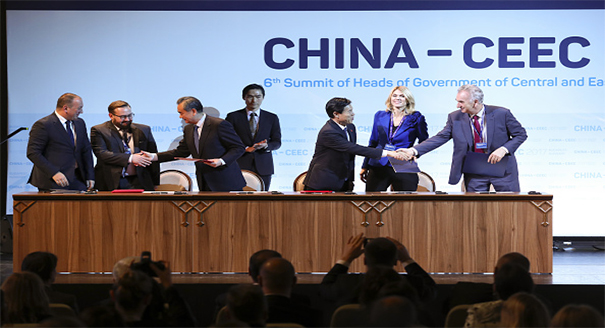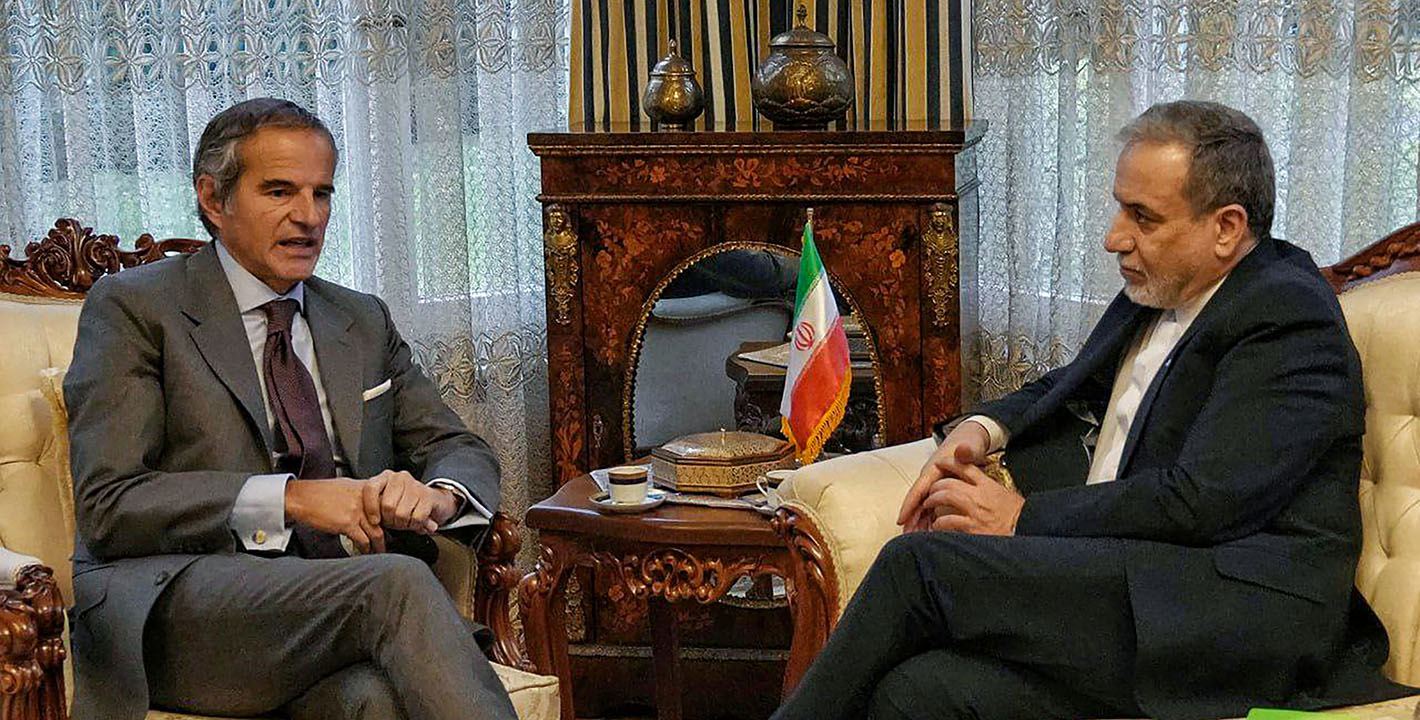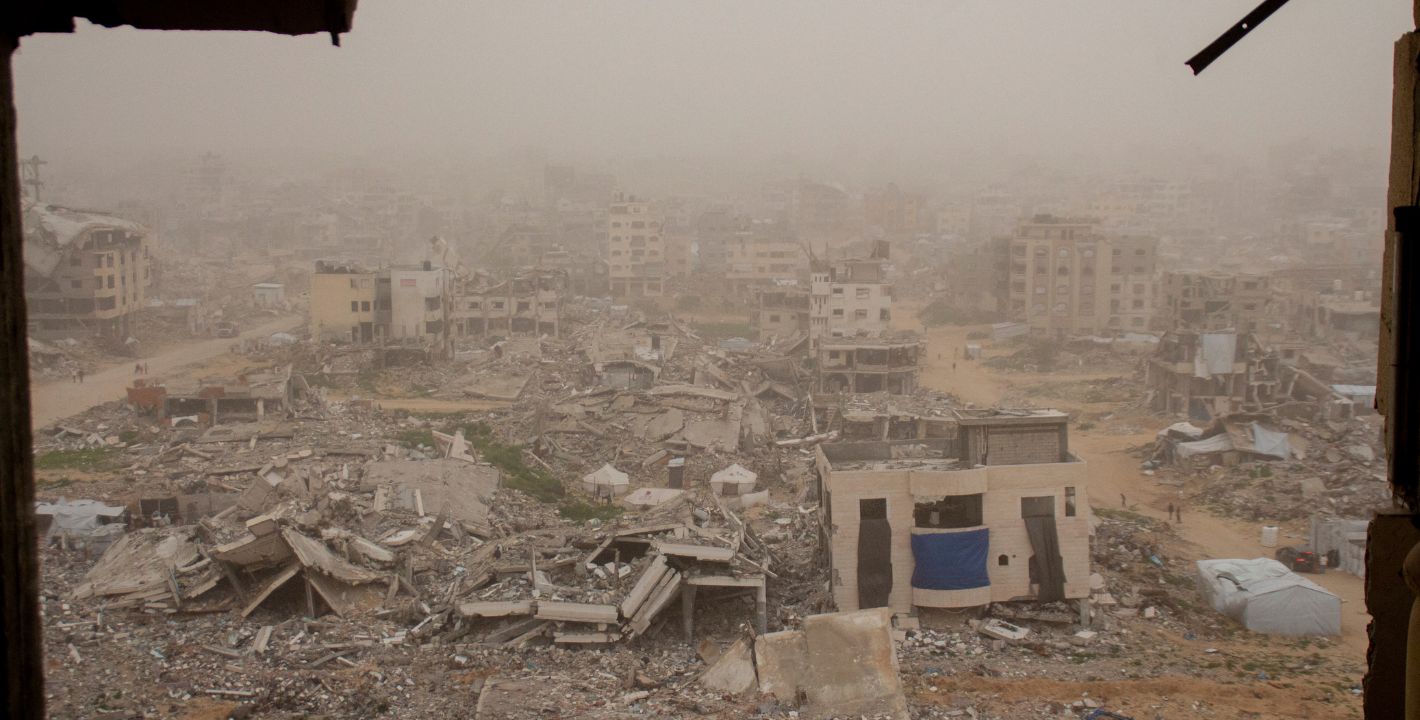Perry Cammack, Cassia Bardos
{
"authors": [
"Perry Cammack"
],
"type": "commentary",
"blog": "Diwan",
"centerAffiliationAll": "dc",
"centers": [
"Carnegie Endowment for International Peace",
"Malcolm H. Kerr Carnegie Middle East Center"
],
"collections": [
"Iranian Proliferation"
],
"englishNewsletterAll": "menaTransitions",
"nonEnglishNewsletterAll": "",
"primaryCenter": "Malcolm H. Kerr Carnegie Middle East Center",
"programAffiliation": "MEP",
"programs": [
"Middle East"
],
"projects": [],
"regions": [
"North America",
"United States",
"Middle East",
"North Africa",
"Gulf",
"Levant",
"Iran",
"Palestine",
"Iraq",
"Russia",
"Israel",
"Syria"
],
"topics": [
"Political Reform",
"Security",
"Foreign Policy",
"Nuclear Policy"
]
}
Source: Getty
Trump of Arabia?
What American voters may have wrought in the Middle East.
With Donald Trump’s shocking election as the 45th president of the United States, the Washington foreign policy establishment is suddenly feeling a sense of dread for the future that might be recognizable to inhabitants of many parts of the Arab world. During the course of an endless campaign, Trump said appalling things about the Middle East, just as he said appalling things about a great many topics.
On fighting terrorists: “The other thing with the terrorists is you have to take out their families, when you get these terrorists, you have to take out their families.” (December 3, 2015)
On the entry of Muslims into the United States: “Donald J. Trump is calling for a total and complete shutdown of Muslims entering the United States until our country’s representatives can figure out what the hell is going on.” (December 7, 2015)
On Iraq: “I also said, by the way, four years ago, three years ago, attack the oil. Take the wealth away; attack the oil and keep the oil.” (February 14, 2016)
Don’t bother reading too much content into these unfortunate remarks. They reflect the bluster of a reality television charlatan, and contain little insight into his future policy decisions. Donald Trump’s campaign consisted almost entirely of alpha male id, disdain for expertise, and an uncanny understanding of the American cultural zeitgeist. It featured no foreign policy advisors, at least none whose counsel was considered, and no foreign policy platform beyond the need to renegotiate trade deals, expand the American military, and defeat the Islamic State.
So what do we really know about what his Middle East policies will look like? The answer is frighteningly little, which goes some way towards explaining the deep angst most foreign policy professionals are now experiencing. Here is a provisional attempt to imagine how a Trump administration might tackle the Middle East during its first months in office.
Syria and Russia: President-elect Trump has praised Moscow’s Syrian intervention, erroneously claiming that Russia has been focused on attacking the Islamic State in Aleppo. He has made it clear that he will steer his administration away from the Syrian conflict and is likely to end military support for the Syrian rebels. He has shown scant sympathy for the humanitarian plight of the Syrian people. Thus, the flow of refugees to the United States—already sluggish and heavily vetted—will slow to a trickle, with potentially global implications as other countries follow his lead.
In short, Trump’s victory is wonderful news for Bashar al-Assad, who is responsible for the deaths of hundreds of thousands of Syrians and the displacement of millions more. While a return to the pre-uprising Syrian status quo is inconceivable, it may be possible to imagine a military victory, pyrrhic though it may be, for the Assad regime.
A Trump victory is also good tidings for Russian President Vladimir Putin. But while Russia’s sphere of influence in Syria seems suddenly more sustainable, Russia’s ability to translate this into broader regional influence, beyond arms sales and diplomatic activity, has probably been overstated.
The Islamic State and Counterterrorism: Notwithstanding Trump’s frequent lambasting of the Obama administration’s efforts to defeat the Islamic State, those efforts have borne significant fruit in recent months, particularly in Iraq, where Mosul could conceivably be recaptured by the time of Trump’s inauguration. Trump’s threats to steal Iraq’s oil or kill terrorist family members thankfully won’t come to pass, but coalition successes in Iraq could provide Trump with the opportunity to reconsider how he will approach the more difficult Islamic State problem in Syria. While increased counter-terrorism cooperation with Russia suddenly seems a more plausible possibility, Trump will soon discover that bombing the Islamic State to hell is easier said than done. Even the devil wouldn’t want any part of the Middle East’s complicated cauldron of sectarian tensions and regional rivalries.
Iran: The Iranian nuclear agreement, one of the signature achievements of the Obama administration, is in serious jeopardy. But while Trump consistently lambasted the agreement as “catastrophic,” he generally referred to it as an inherited bad contract that could be fixed through aggressive enforcement. Therefore, it seems unlikely that a President Trump will simply abrogate the agreement, which would precipitate a nuclear crisis that could quickly engulf his presidency. Both Tehran and Washington benefit from the agreement, and it is possible that a delicate, recalibrated relationship of mutual deterrence will be arrived at, since the prospect of a U.S.-Iran war in the Middle East is too horrific to contemplate.
However, the alternative—the steady unravelling of the agreement through incremental tit-for-tat measures and countermeasures—is perhaps the likeliest outcome. Another possibility, not likely but also not inconceivable, is that Tehran sees an opportunity to de-escalate tensions with Washington because of Trump’s instincts to warm up to Russia, soften on Syria, and double down on the Islamic State.
Regional Allies: The Trump presidency will quite possibly see potential opportunities to re-energize America’s troubled partnerships with traditional allies such as Israel and Saudi Arabia. In the short run, he may well have some success in this area, with high-profile meetings with senior Saudi and Israeli officials in early 2017, as both sides will be keen to start off the Trump presidency on a new foot. But as the American disengagement from the Middle East continues and even accelerates, and Trump’s unpredictability inevitably begins to materialize, tensions are likely to reappear in these relationships as well. That is particularly the case with Riyadh as the implications of Trump’s approach to Syria become more evident.
Benjamin Netanyahu’s government in Israel may find more to like in a Trump administration—including disinterest in the Arab-Israel conflict. But here, too, there are risks of drift, particularly if Trump is seen as disengaging. Furthermore, in light of the resurgence of anti-Semitism associated with the “alt-right,” a core Trump constituency, the Trump presidency is unlikely to enjoy significant popular support in the American Jewish community, which could manifest itself in relations between the United States and Israel.
Arab Authoritarianism: Gone is the cerebral approach of Barack Obama. Donald Trump speaks a raw language of power that some authoritarian leaders may find comprehensible and even comforting. While the State Department will continue to publish annual human rights reports and issue occasional rebukes of political abuses, it will be understood that human rights, democracy promotion, and a focus on better governance, to the extent they were issues of concern in Washington before, are so no longer. This may be good news for Arab authoritarian leaders, but it is hardly good news for the region, given the central role that the catastrophic failures in governance have played in fomenting extremism and conflict.
Those who had hoped that Tuesday’s elections would result in a call to the American fire brigade to begin putting out Middle Eastern fires are surely despondent today. But given America’s track record in recent decades in the region, they would probably have been disappointed after January 20 anyway. The American people have sent a crude but perhaps not wholly unhelpful message to the Middle East: If a more stable region is to be constructed, the impetus will not originate in Washington.
About the Author

Former Nonresident Fellow, Middle East Program
Perry Cammack was a nonresident fellow in the Middle East Program at the Carnegie Endowment for International Peace, where he focuses on long-term regional trends and their implications for American foreign policy.
- General MobilizationCommentary
- Arab Horizons: Pitfalls and Pathways to ReformArticle
Perry Cammack
Recent Work
Carnegie does not take institutional positions on public policy issues; the views represented herein are those of the author(s) and do not necessarily reflect the views of Carnegie, its staff, or its trustees.
More Work from Diwan
- Axis of Resistance or Suicide?Commentary
As Iran defends its interests in the region and its regime’s survival, it may push Hezbollah into the abyss.
Michael Young
- When Football Is More Than FootballCommentary
The recent African Cup of Nations tournament in Morocco touched on issues that largely transcended the sport.
Issam Kayssi, Yasmine Zarhloule
- U.S. Aims in Iran Extend Beyond Nuclear IssuesCommentary
Because of this, the costs and risks of an attack merit far more public scrutiny than they are receiving.
Nicole Grajewski
- What Gaza Showed UsCommentary
The conflict did not reshape Arab foreign policy; on the contrary it exposed its limits.
Angie Omar
- The Jamaa al-Islamiyya at a CrossroadsCommentary
The organization is under U.S. sanctions, caught between a need to change and a refusal to do so.
Mohamad Fawaz










